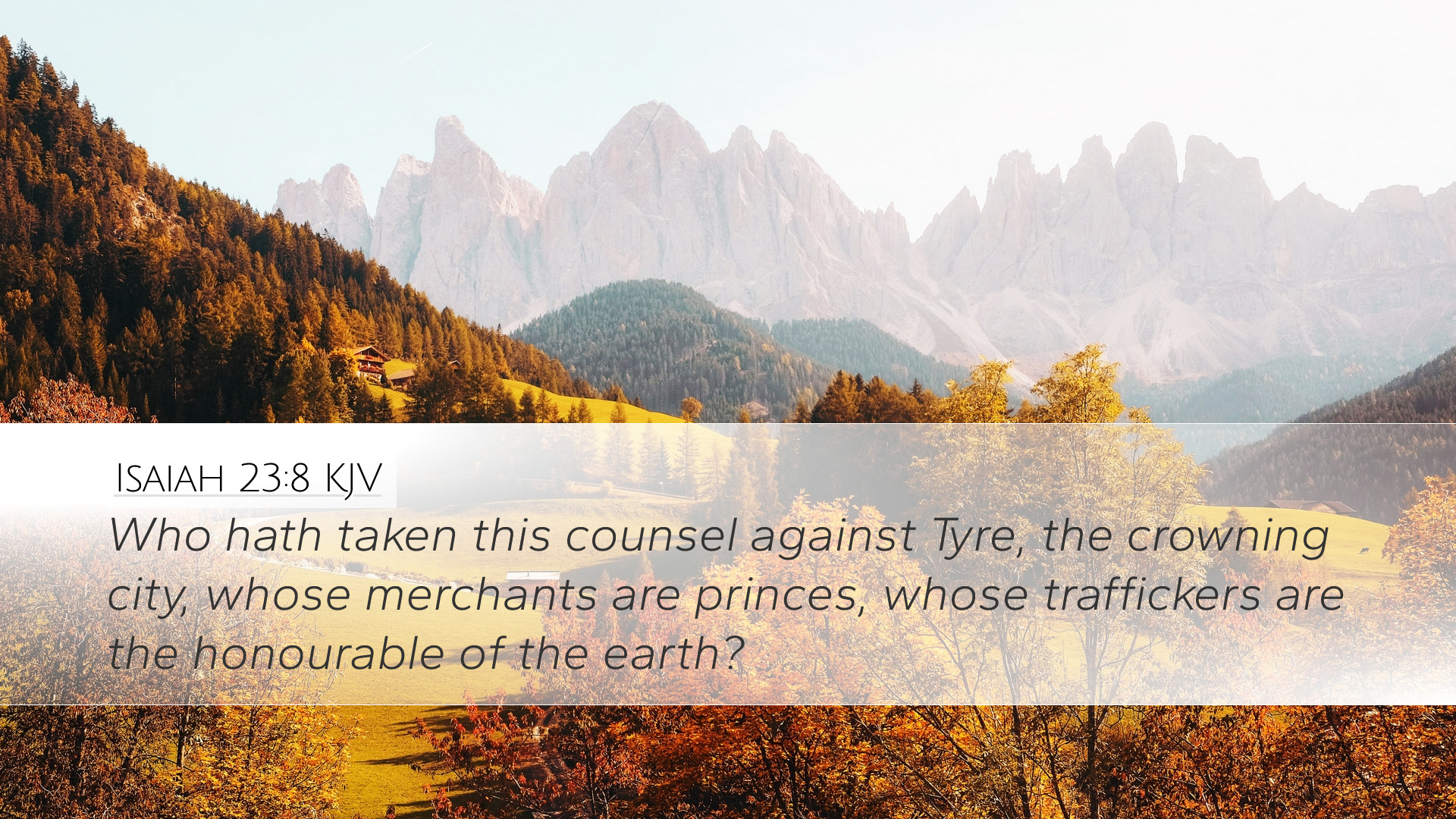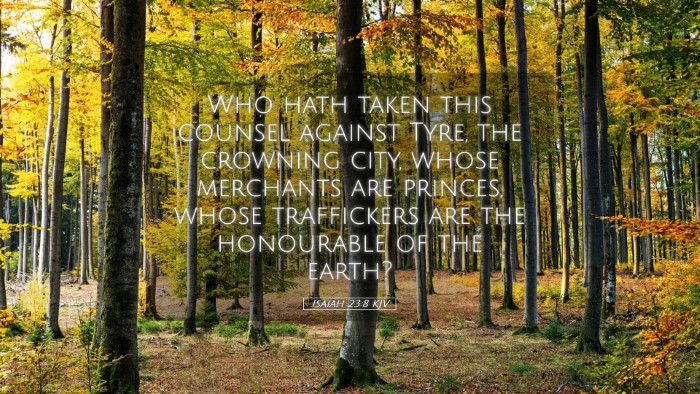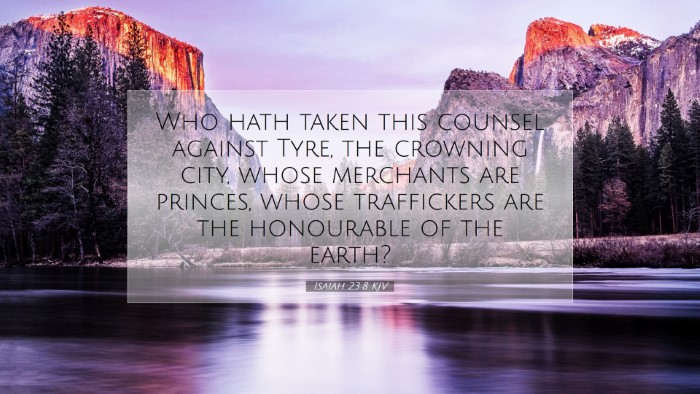Commentary on Isaiah 23:8
Text of Isaiah 23:8: "Who hath taken this counsel against Tyre, the crowning city, whose merchants are princes, whose traffickers are the honourable of the earth?"
Introduction
This verse serves as a profound inquiry into the providence and judgment of God upon Tyre, a prominent city known for its wealth and trade. Through the lenses of various commentaries, we will explore the implications of this passage and its relevance to both the historical context of Isaiah's time and its overarching theological significance.
Historical Context
Tyre was a powerful Phoenician city located on the eastern coast of the Mediterranean Sea. Its strategic position made it a hub for trade and commerce, and its people were known for their affluent lifestyle. However, as Isaiah prophesied, the city faced impending judgment due to its pride and opposition to God. Matthew Henry emphasizes that Tyre, regarded as the "crowning city," represents human pride that ultimately faces divine wrath.
Theological Insights
- The Sovereignty of God: This passage highlights God's sovereignty in allowing or even orchestrating the rise and fall of nations. Albert Barnes notes that the question posed in the verse signifies God's active role in the affairs of men.
- Human Pride and Economic Power: The merchants of Tyre are described as princes, reflecting the intertwined nature of commerce and power. Adam Clarke observes that the city's wealth led to arrogance and a false sense of security, ultimately making it susceptible to divine judgment.
- Judgment and Hope: While this verse emphasizes impending judgment, it also provides a backdrop for future hope and restoration. Scholars suggest that recognizing the fragility of human constructs prods believers to lean on divine providence instead of worldly means.
Reflection on God’s Counsel
Isaiah questions, "Who hath taken this counsel against Tyre?" This rhetorical inquiry suggests that the counsel comes not from mere human schemes but is a divine decree against prideful nations. Henry illustrates that God often uses lesser nations or powers to accomplish His divine purposes, turning their plots against them.
Lessons for Modern Application
Caution Against Pride
Tyre's downfall serves as a cautionary tale for contemporary society. Many nations and individuals today rely heavily on their economic powers and status. Clarke's insights remind us that such securities are fleeting, and we should heed the warning against pride.
Dependence on God
Ultimately, this passage directs our focus to God as the true source of wisdom and counsel. In a world marked by instability and uncertainty, believers are called to place their trust in divine guidance over material wealth.
Conclusion
Isaiah 23:8 serves both as an indictment against the pride of Tyre and a reminder of God's sovereign hand in history. Through the voices of Matthew Henry, Albert Barnes, and Adam Clarke, the echoes of this prophetic warning resonate through time, challenging pastors, theologians, and scholars to contemplate the nature of divine judgment and the human condition in relation to God’s grand narrative.


